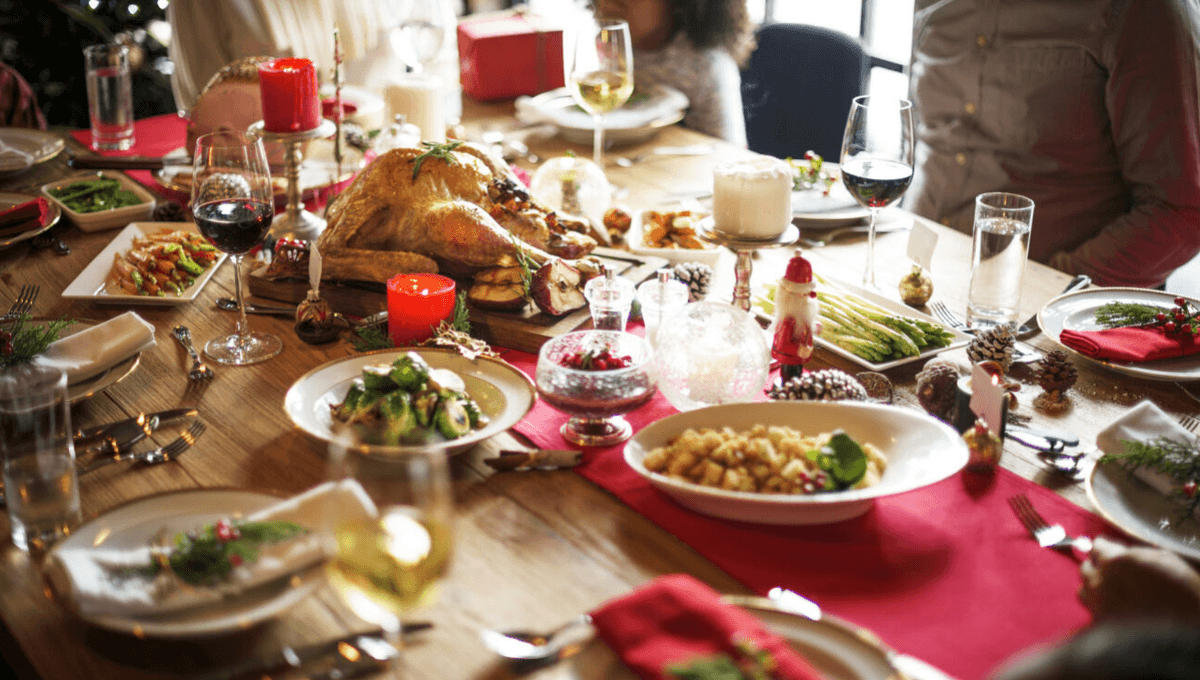
The season of overindulgence is upon us. Christmas is just around the corner, a time when many of us will enjoy the finer and fattier things in life: roasted this, roasted that, meats wrapped in other meats stuffed into other forms of meat, etc. It can often be a bit much. However, you might be relieved to hear that some parts of the traditional Christmas meals do hold some solid health benefits (caveats and limits on eggnog intake apply).
Many people are wary of cholesterol when eating large, rich meals. However, it’s important to distinguish between “good” and “bad” cholesterol.
Cholesterol is a waxy, fat-like substance that’s found in most body tissues. Having high levels of fats in the blood can lead to serious health problems, most notably heart disease and strokes. Simultaneously, your body needs some of this fatty stuff to be healthy as it’s used to build cells and produce certain hormones.
“Many people still think of all cholesterol as harmful. However, it’s only LDL (low-density lipoprotein) cholesterol, often known as ‘bad’ cholesterol, that does the damage. LDL transports cholesterol to your arteries. It can lead to a build-up of plaque, resulting in poor blood flow. In general, the higher your LDL cholesterol levels, the higher your risk for coronary heart disease,” Dr Avinash Hari Narayanan, Clinical Lead at London Medical Laboratory, said in a statement sent to IFLScience.
“On the other hand, high-density lipoprotein (HDL) cholesterol can be called ‘good’ cholesterol. Think of HDL as a vacuum cleaner for cholesterol. When HDL is at healthy levels in your blood it removes extra cholesterol and plaque build-up in your arteries and then sends it to your liver. Your liver then expels it from your body. This helps reduce your risk of heart disease, heart attack, and stroke,” he added.
The good news is that some components of the traditional Christmas dinner – turkey, salmon, chicken breast, brussels sprouts, and red cabbage – can be relatively good for your cholesterol if eaten in moderation.
“There are plenty of foods popular during the festive season that can help lower your LDL levels, which improves your HDL to LDL ratio. The great news is that this includes that perennial Christmas favourite, turkey, along with several other festive meats such as chicken breast,” Dr Narayanan explained.
“That’s because research shows that fatty fish, chicken breast, and turkey are good natural sources of niacin. Niacin is also known as vitamin B3. It can help lower cholesterol and other fats in your blood. Niacin helps raise HDL good cholesterol, lower LDL cholesterol, and also lowers another type of fat in your body called ‘triglycerides’,” he continued.
Even roasted potatoes can have their benefits, as long as they are cooked with caution.
“To be sure, roasting isn’t the healthiest way to prepare potatoes, especially if you are using lard or goose fat. However, using unsaturated cooking oils such as olive oil is more heart-healthy. So too are low-fat sunflower cooking sprays and rapeseed oil. Rapeseed oil is particularly high in sterols. Sterols and stanols are plant chemicals of a similar size and shape to cholesterol. They are absorbed into the bloodstream and actually stop some cholesterol from being absorbed, lowering the cholesterol in your blood,” added Dr Narayanan.
It isn’t all good news though. Other parts of Christmas dinners are simply not so good for you, no matter how delicious they may be. This especially applies to desserts like mince pies, yule logs, and rich cream.
If you want to pick a healthier dessert option, you should consider things like baked apples or pears, which help lower overall cholesterol levels, or berries, which are high in antioxidants.
At the risk of sounding like the Grinch, you might want to keep an eye on portion size too. One survey has suggested that the average person consumes a belly-busting 5,373 calories on Christmas day – that’s twice the recommended daily average for men and triple for women. This is not good by any stretch of the imagination.
Likewise, the festive period also sees a fair amount of excess drinking. A survey by DrinkAware found that almost two-thirds of drinkers over-indulge with alcohol over the festive season, with the average man drinking the equivalent of six glasses of wine on Christmas Day, which is way more than any health expert would recommend.
Then again, Christmas only comes once a year. As long as you maintain an active lifestyle and a healthy diet for most of the year, a single day of overindulgence isn’t going to do too much harm. You should enjoy everything in life with moderation – including moderation.
The content of this article is not intended to be a substitute for professional medical advice, diagnosis, or treatment. Always seek the advice of qualified health providers with questions you may have regarding medical conditions.
Source Link: Christmas Dinner Can Actually Be Good For You If You Make It Right